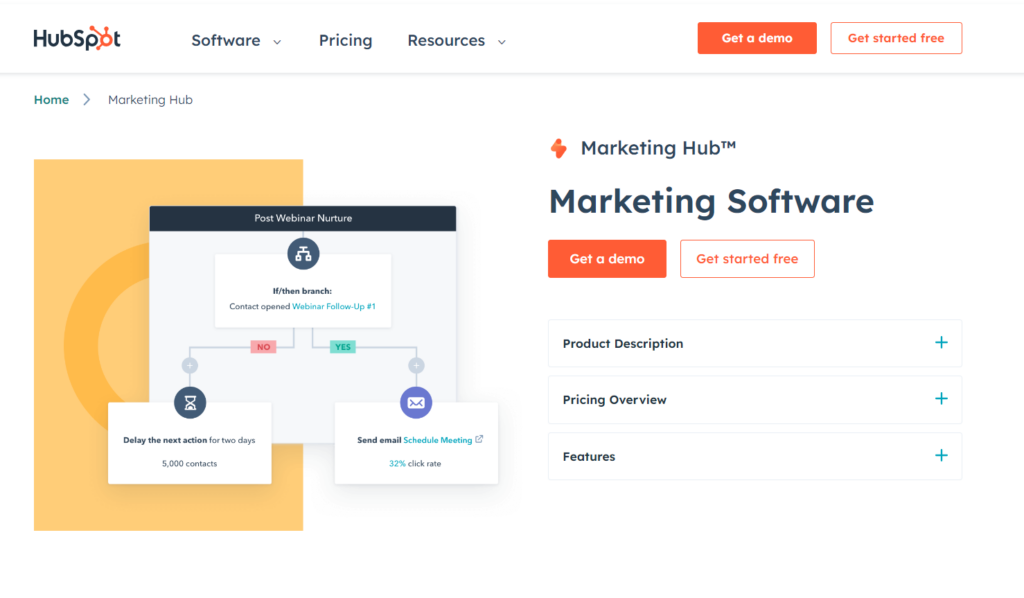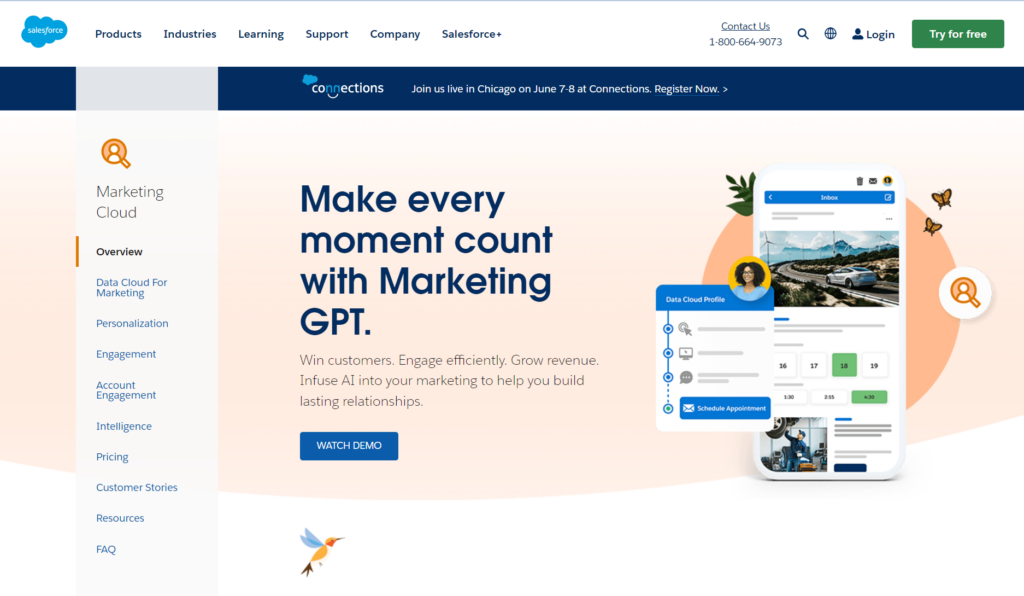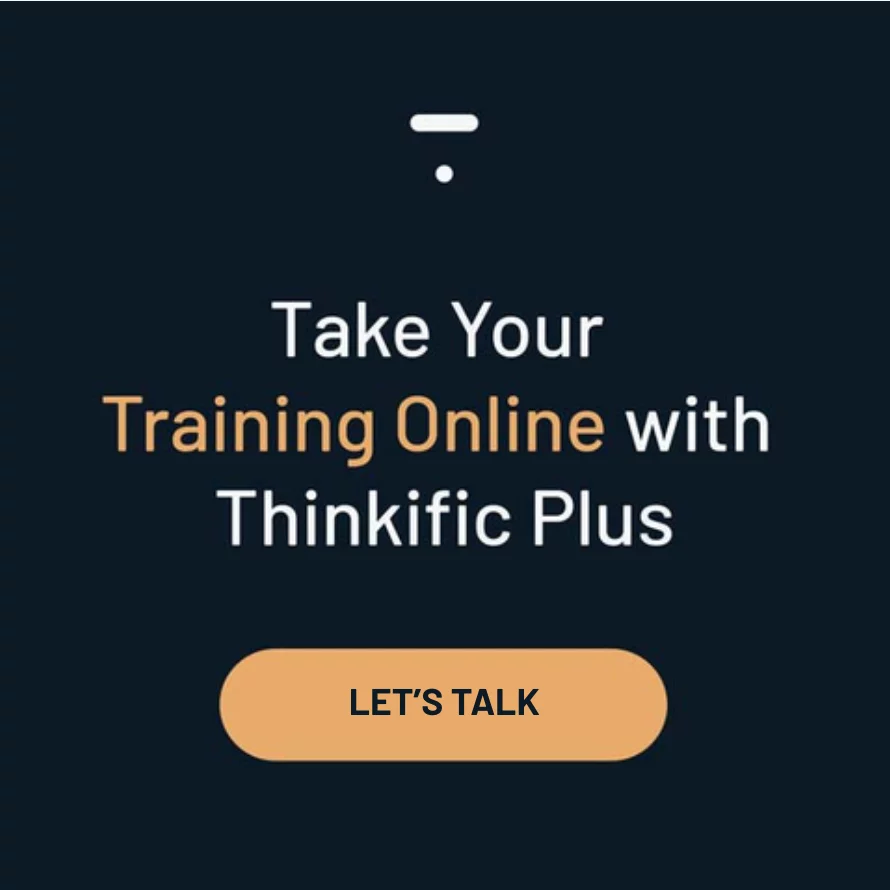Business-to-business (B2B) marketing is one of the trickiest areas of marketing because of the historical lack of data available. Since B2B sales cycles are much longer than B2C sales, it’s hard for marketing teams to pinpoint exactly which touchpoint helped move the lead closer to conversion.
There are also many more stakeholders within the buying and selling parties, so there’s increased complexity in tracking down which stakeholder was influential to the deal and what they said or did that actually helped with closing.
That’s where B2B marketing platforms come into play!
Skip ahead:
- Introduction to B2B Marketing Platforms
- Key Features to Consider
- Top B2B Marketing Platforms Comparison
- Case Studies and Success Stories
- Tips for Choosing the Right B2B Marketing Platform
- Conclusion
Introduction to B2B Marketing Platforms
B2B marketing platforms are centralized software systems for marketers to be able to plan, execute, track, and monitor success on campaigns targeted to a product’s ideal customer profile (ICP). This in turn makes it easier for the marketing strategist to ideate new opportunities for targeting and measure if activities are successful. Some ways that B2B marketing platforms can help a marketing team include:
- Organization of companies or contacts by expected revenue, so that marketing teams only focusing on targeting high-revenue customer profiles
- Creating heatmaps of landing pages so that web designers can see which copy or design elements are driving the highest engagement on the site
- Compiling reports about where high-value leads were originally referred from so that more focus can be pulled on earning more similar leads through those channels
- Moving cold leads into an automated and personalized workflow to nurture them over time with the goal of warming them up to a hot lead
Key Features to Consider
- Targeted Audience Reach and Segmentation
In building a strong B2B marketing foundation, a company needs to have a thorough and defensible idea of who their ideal customer is. When the target audience is clearly defined, it’s easy for all marketing activities to be directed to educating and persuading this one type of buyer. As a result, less time and money is wasted on customers that might not bring a high return on investment (ROI).
Looking at the data in your B2B marketing platform can help you identify and build your ICP. Start by reviewing deals that have been won in the last year or two, and cross reference that with information like the:
- Type of company (eg. start-up, enterprise)
- Industry the company operates in (eg. healthcare, retail)
- Deal value
- Type of product purchased (if you offer multiple packages)
- Frequency of the purchase
- Reason why the product was needed by the company
- Channels the company searches when purchasing this product
- Size of the buying party
- Number of touchpoints before conversion
With this information, you can identify one ICP, or segment unique buyer profiles for each product offering that you have.
- Lead Generation and Conversion Tracking
Any for-profit company needs to stay on top of their lead generation efforts if they want to stay in business! B2B marketing platforms can track information about new leads to identify which channels are actually producing leads. From there, the platform can also calculate which channels are producing high dollar value contracts or opportunities with a high closing ratio. Most platforms can automatically deliver reports on these metrics to the marketing team on a daily, weekly, or as-needed basis. Since most marketing teams are now being measured on lead generation efforts for performance reviews, this is a must-have feature!
- Marketing Automation and Workflow Management
Marketing platforms can help with automating outreach, workflows, and report delivery. As an example, when leads are moving throughout the sales funnel, marketing automations can notify internal teams about action items (such as a reminder to do a phone call) or allow the lead to receive personalized communications (such as an email request to set-up a meeting). And with constant changes happening in the industry, it’s important to have a feature that can frequently deliver reports on marketing metrics to allow teams to react to these changes quickly. Once the workflow is built, it all happens automatically and saves a lot of administrative time for both marketing and sales teams!
- Integration Capabilities
Even the best B2B marketing platforms might not have 100% of the features that you’re looking for, so it’s important to find ones that integrate well with the rest of your tech stack. Not only does this allow you to utilize data across multiple marketing tools, but it will also allow you to connect to information from the wider company. For example, if your marketing platform provides information on inbound website leads, then it would be helpful to have an integration to the sales software that tracks the total closed revenue from inbound leads. As another example, an integration from the product team to the marketing software can create to-do items for the marketing team ahead of the new feature launch.
Top B2B Marketing Platforms Comparison
Hubspot is one of the leading customer relationship management (CRM) tools out there, and has great perks for small and medium sized marketing teams. Not only can it enable supervision into overall campaign management, but it also connects you to revenue data to prove the ROI of your marketing efforts! Use the Marketing Hub to set-up and connect your marketing channels.
G2 Score: 4.4 / 5
Key features:
- Huge integration marketplace to sync with the rest of your organization
- Ability to attribute leads from all marketing efforts to prove ROI
- Can also store sales and customer success data to give you more customer insights
- Research, plan, and schedule your content from one place
Pricing:
- Has a free plan
- Paid plans for the Marketing Hub start at $45/month
- Heavy discount programs with partner organizations
Another well-known and well-loved CRM is Salesforce. It leverages customer data with artificial intelligence (AI) features to ensure every customer interaction is personalized. The Salesforce platform is a bit bigger and therefore, designed for large and enterprise-level companies. The Salesforce Marketing Cloud product will be most useful to marketing teams.
G2 Score: 4 / 5
Key features:
- Customer journey builder to grow your customer’s lifetime value (CLV)
- Reports on customer data to inform your marketing strategy
- AI-powered campaign automations
- Order management and payment processing
Pricing:
- Custom pricing per business
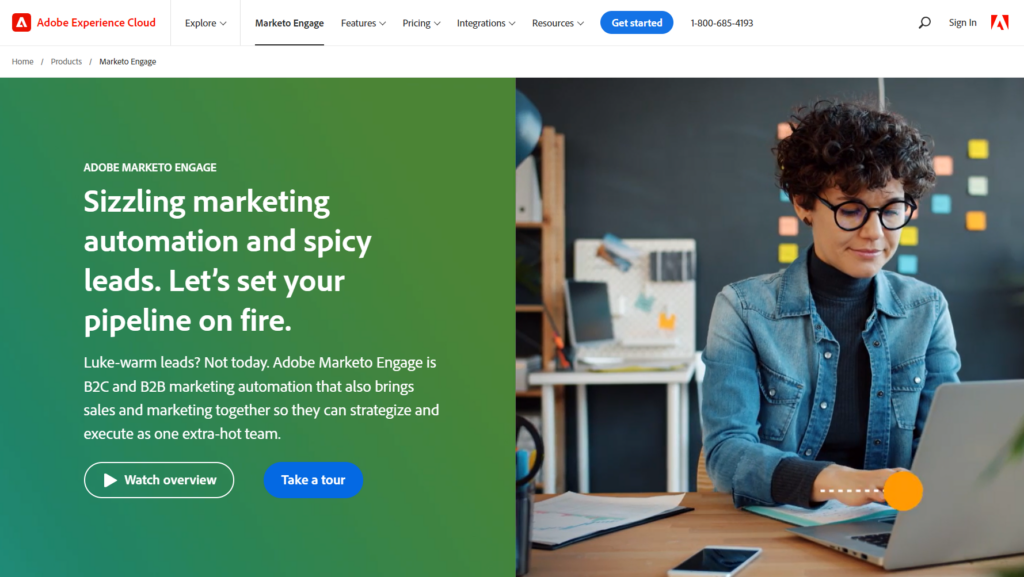
Marketo is a full-scale marketing campaign engagement software created by Adobe. And as an Adobe product, it syncs well with other design and automation tools offered by the company! However, due to its power and complexity compared to other marketing platforms on the market, it’s recommended that new users do a training course to ensure they can maximize value from the tool.
G2 Score: 4.1 / 5
Key features:
- Multi-channel marketing automation based on a user’s behavioral data
- Lead management solution to organize top-of-funnel revenue sources
- Email marketing, including A/B testing and reporting capabilities
Pricing:
- No free plan available
- Paid plans start at $895 USD
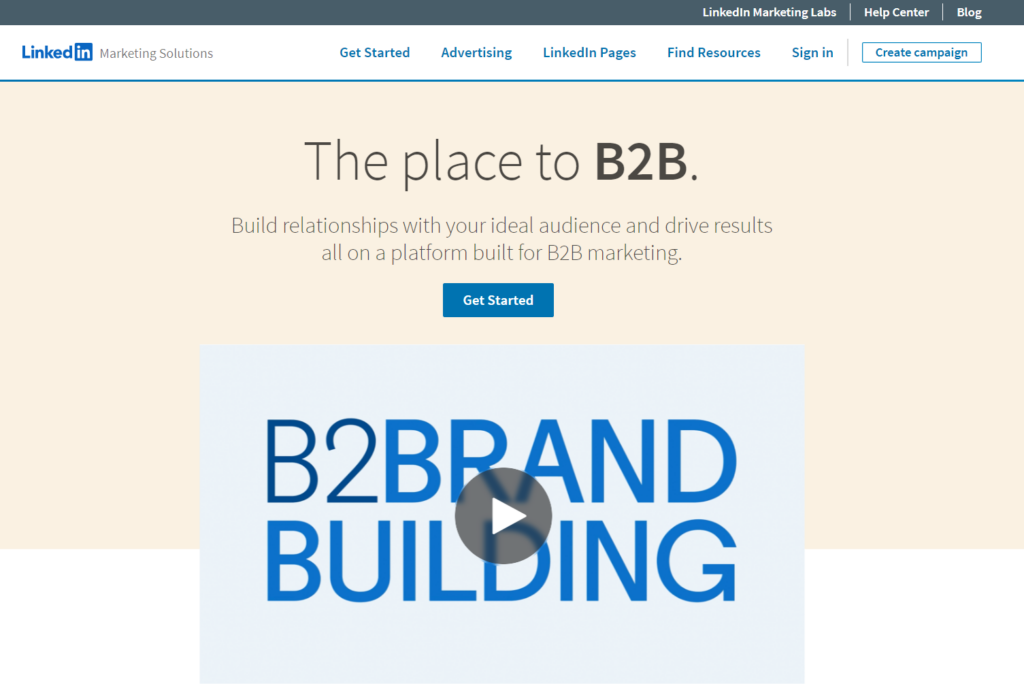
LinkedIn is one of the best social media platforms for businesses that are selling to other businesses. Most LinkedIn users rely on the platform for sharing company stories, job updates, and industry news – so it’s a great spot for selling to other business leaders! Look specifically for the LinkedIn Marketing Solutions product to find useful promotional tools.
G2 Score: 4 / 5
Key features:
- Create company and product pages
- Follow and interact with other company profiles
- Built-in campaign management for paid ads
- Analytics dashboard for understanding followers and engagement
Pricing:
- Free!
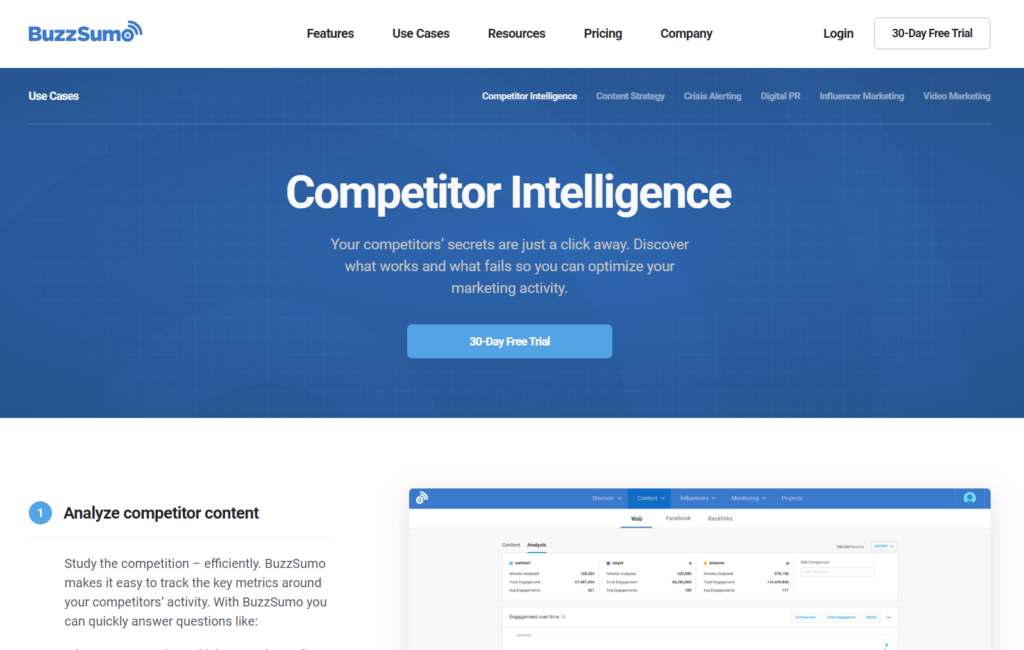
For marketers pursuing digital content strategies like SEO and paid media, BuzzSumo can help with identifying new opportunities and measuring performance. BuzzSumo measures online indicators such as social media engagement or web traffic to identify sentiment and estimated market share. It’s also great to measure up against a competitor’s content!
G2 Score: 4.5 / 5
Key features:
- Content research tools to identify marketing and public relations (PR) opportunities
- Database to find and contact influencers
- Content sentiment and brand monitoring
- Create custom dashboards to see into your brand’s online presence and competition
Pricing:
- 30-day free trial available
- Paid plans start at $119 USD per month
- Save up to 20% with an annual subscription
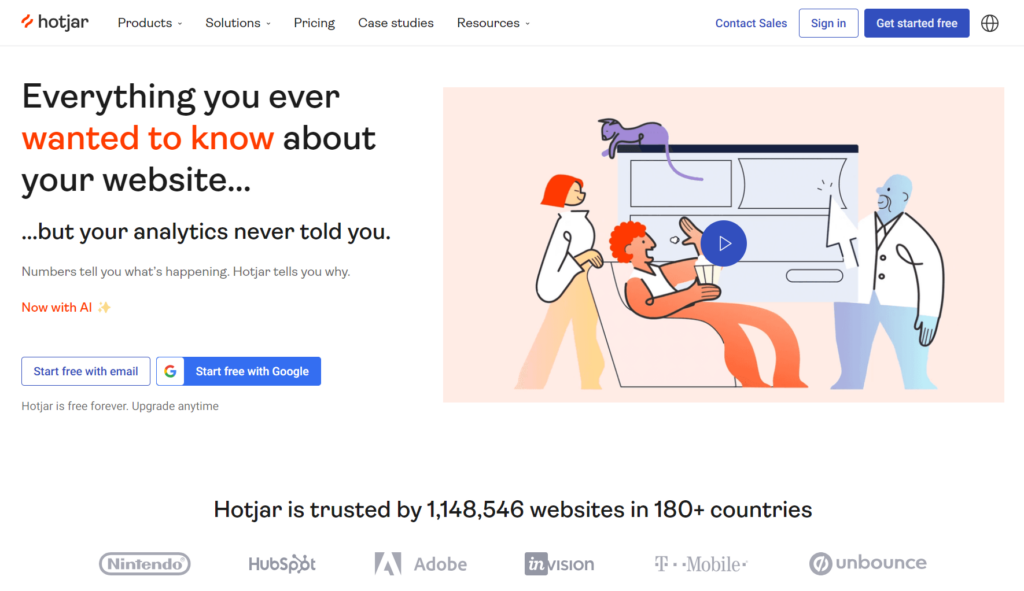
Every company has a website, and it should be well optimized! HotJar helps you do this by creating heatmaps of your landing pages to see how website visitors are moving around the page and interacting with your messaging. Use these insights to continuously improve your layout and copy.
G2 Score: 4.3 / 5
Key features:
- Create custom heatmaps of each landing page
- Get notified of rage clicks and U-turns so you can mitigate those events
- View recordings of individual users touring around the site
- Offer surveys to web visitors to collect user experience (UX) feedback
Pricing:
- Has a free plan
- Paid plans start at $39 USD per month
- Save up to 20% with an annual subscription
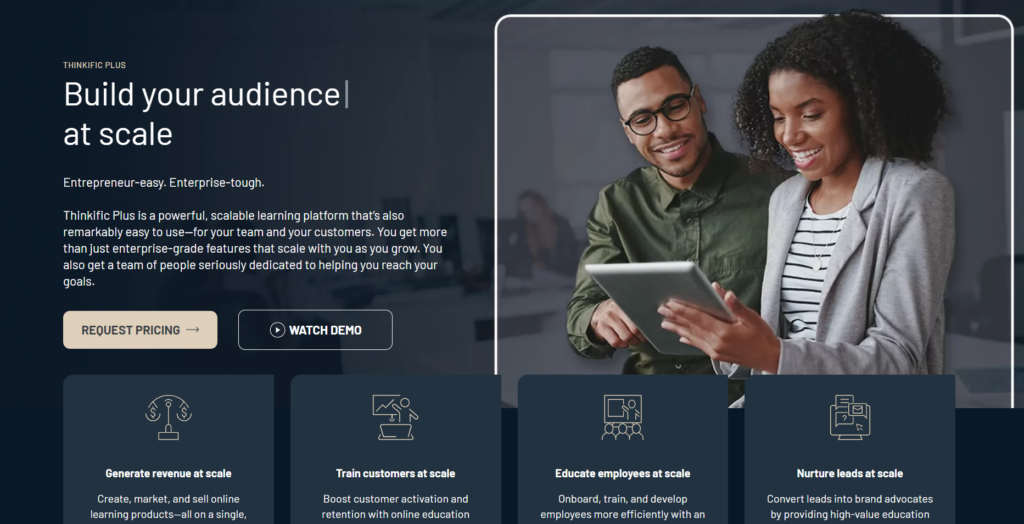
If your company has a complex product or service, Thinkific Plus can help you create, manage, and promote an online academy that will educate your employees, partners, and customers about the full value of your offerings. Educational content about your products can also help nurture and convert leads at scale!
G2 Score: 4.7 / 5
Key features:
- Create and sell online products to generate revenue
- Host training and customer onboarding to increase product usage
- Automate distribution of educational content
- Detailed analytics into content views and engagement
Pricing:
- Custom pricing per business
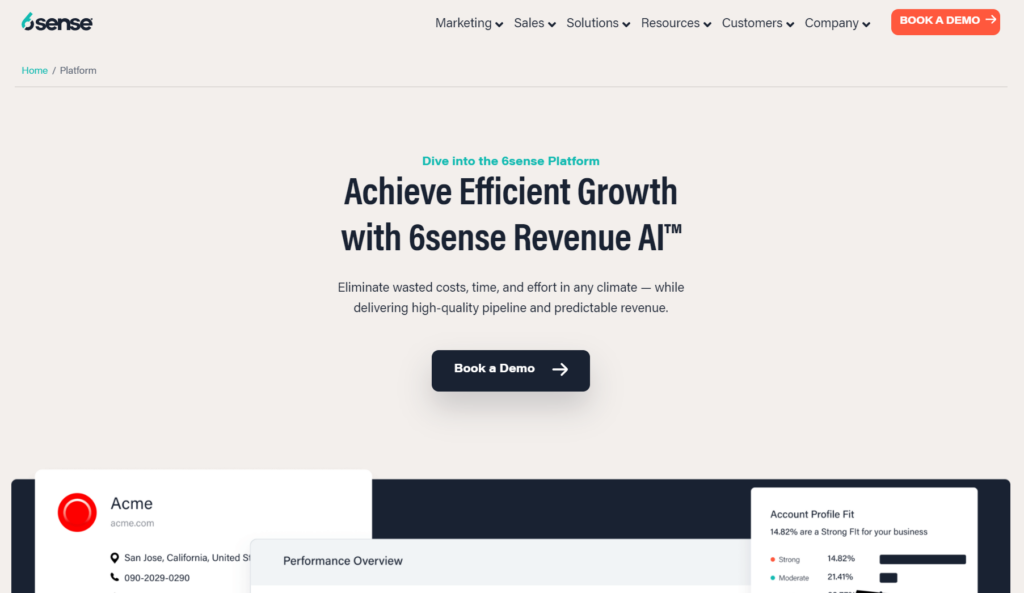
6sense is an account based marketing (ABM) platform that leverages AI to find your missed opportunities before you miss them! It’s fantastic for companies that are targeting high-value B2B deals and need to track how each touchpoint improves the likelihood of conversion.
G2 Score: 4.4 / 5
Key features:
- Match anonymous and known buyer data to buying intent signals
- Identify keywords and topics that have strong buying intent
- Build segmented audiences with unique activation plans
- Automate workflows between marketing and sales activities
Pricing: Custom pricing per business
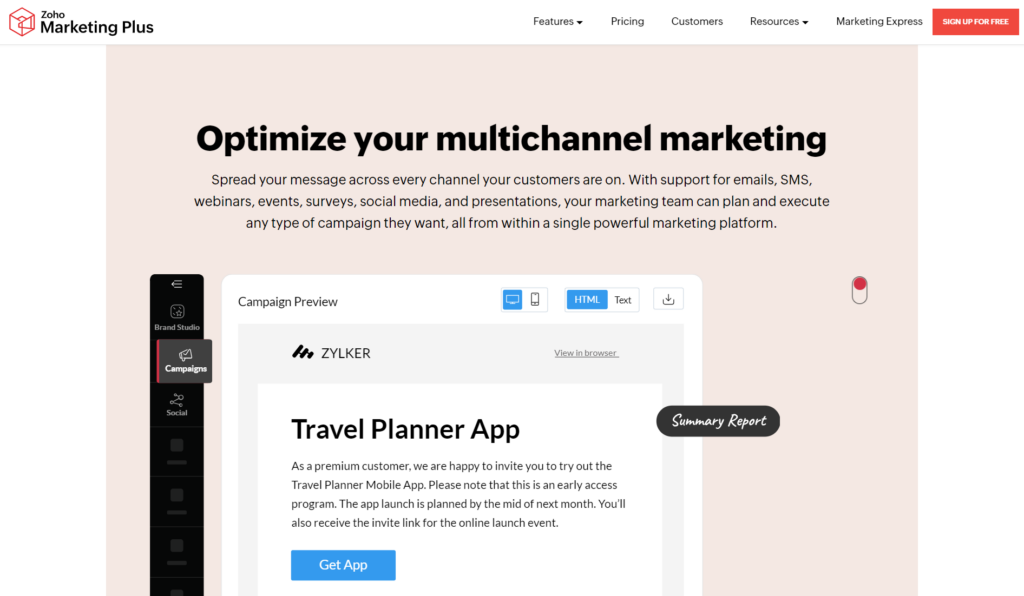
The Zoho platform offers a ton of great products to support B2B marketing efforts, making it a great option for companies that have large and distributed teams. Zoho also has products for almost every other major department so it would be easy for marketing data to sync across other activities in the organization.
G2 Score: 4.4 / 5
Key features:
- Email marketing campaigns
- Social media and content management centers
- Online website builder and optimization tools (including a live chat app!)
- Webinar and event management
Pricing:
- Pricing varies per product
- 15-day free trial available
- Paid plans start at $20 USD per user per month
- Save up to 34% with an annual subscription
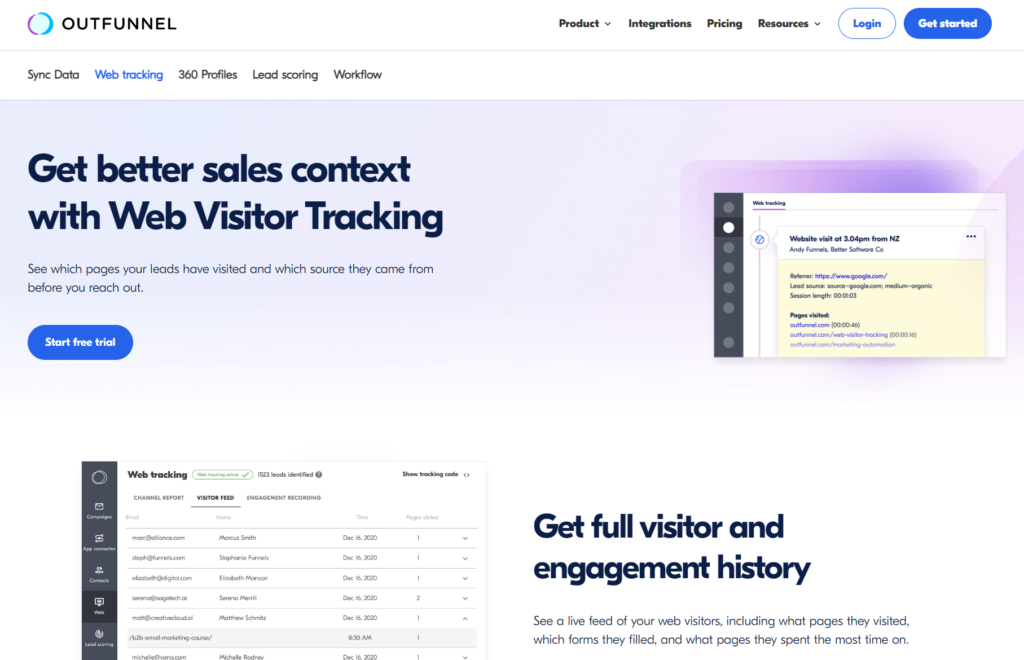
Capturing demand is all about knowing when your buyers are ready to commit to the sale! Outfunnel is a sales and marketing workflow tool to help identify and connect with hot leads. It combines data from the rest of your tech stack with buyer intent signals to notify you when someone is getting close to purchase.
G2 Score: 4.3 / 5
Key features:
- Automated lead scoring
- Website tracking and analytics
- Integrations with other major marketing platforms (like Hubspot and Pipedrive!)
Pricing:
- 14-day free trial available
- Paid plans start at $59 USD per month
- Save up to 16% with an annual subscription
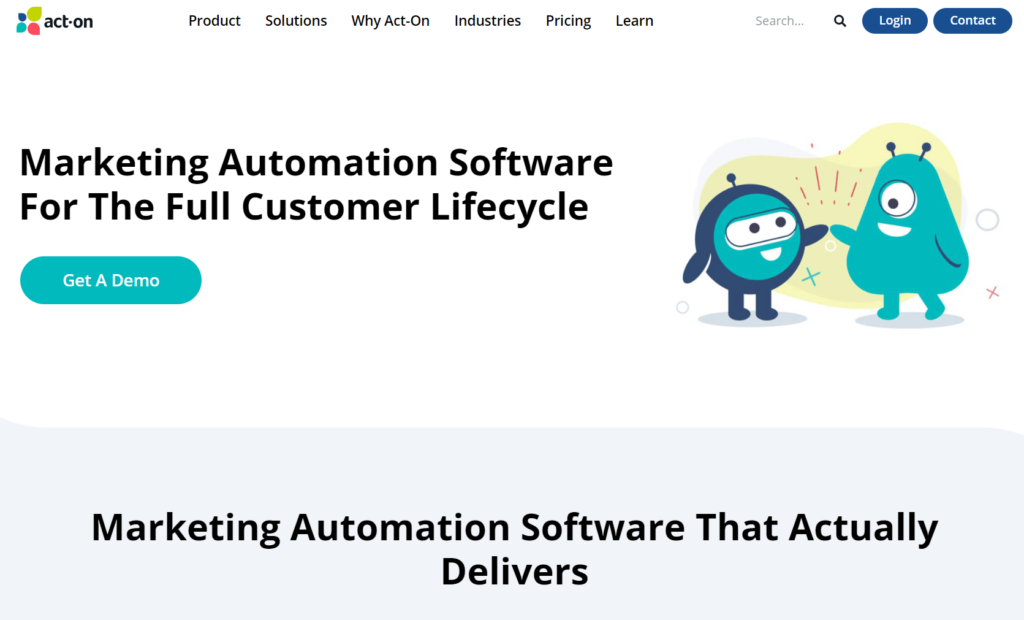
Act-On is another automated workflow tool that helps to identify the customer’s lifecycle stage and sends personalized content to help them convert. This makes it a great tool for teams that are scaling up their ABM efforts!
G2 Score: 4.1 / 5
Key features:
- Integrations with major CRM platforms like Salesforce and Zendesk
- Intelligent reporting system for proving marketing ROI
- Identification of customers in each lifecycle stage to help with forecasting and planning
Pricing:
- No free plan available
- Paid plans start at $900 USD per month
Case Studies and Success Stories
- Alacrity Canada Expanded with Thinkific Plus
Alacrity Canada is a non-profit organization that helps new entrepreneurs to launch their company. In 2020, they launched a digital marketing program with Thinkific Plus to train future entrepreneurs on the fundamentals of starting and operating a business. Since then, they’ve already supported over 6,000 new business owners!
- Rakuten Grew Revenue 25% YoY with Hubspot
Rakuten is a global marketplace, focused on connecting consumers with cash-back incentives at popular retail chains. Through leveraging Hubspot marketing reports, Rakuten was able to save time on manual data collection and receive better insights into where customers are actually engaging on the site. This allowed them to focus on what was working well and to optimize on what wasn’t. The result was a 25% increase in year-over-year revenue and a 50% decrease in time spent on reporting activities.
- Diligent Used 6sense to Adopt an Account-Centric Approach
Diligent is a virtual board management company to help with governing large companies. As Diligent grew, overseeing the full sales and marketing function became a lot more complex. 6sense helped align marketing and sales teams on target accounts that had high revenue potential, which allowed them to become five times more likely to win a new opportunity within just three months of adopting the platform!
Tips for Choosing the Right B2B Marketing Platform
There’s more B2B marketing platforms available than we’ll ever be able to write about in one post. So here’s a few questions to think about when you do your independent search:
- How will it scale? As your organization grows, will this be able to accommodate your team, contact databases, and increased activity? What will pricing look like at that higher level?
- Will your team be able to onboard easily? Consider if your team might need additional training to use the platform. Think of who will use the tool most often and their current experience with digital marketing tools.
- Will it work with a global team? Compliance and digital security laws vary by country. If your team is spread out internationally, you’ll need to know if the platform can work in those places. If you’re accepting payments through the marketing platform, you’ll need to make sure it accepts the currencies of your target countries, too.
- Is it easy to share reports and data? To prove the ROI of your marketing and to help you target in the right areas, you’ll need to share data with other parties. Make sure this is easy to do!
If you can’t find the answers to these questions on a platform’s website, make sure to ask the vendor before purchasing. This will help you ensure you make the right pick for your needs!
Conclusion
Regardless of the size of your organization, B2B marketing platforms are super important for managing your data, helping you figure out your ICP, forecast future goals, and execute on marketing strategies.
Having a centralized place to manage and track marketing programs will allow you to be more strategic with your plans and to ensure that time and budget is spent only on activities that drive growth for your organization.
As you continue your search for a B2B marketing platform, remember to consider how easily your team can get started with it and how it will align with your growth plans. When in doubt, don’t hesitate to ask your vendor for any clarifications!
Scale your business and grow your revenue with B2B Course Sales
Learn how to leverage your company’s knowledge expertise to market, price, and sell online courses to corporate clients and secure B2B customers.

